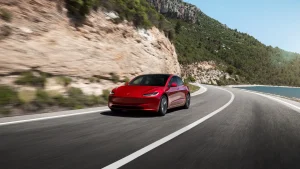Electric cars cost half as much to run as petrol vehicles
EV owners spend £1,154 annually on running costs – less than half the £2,300 needed for petrol vehicles, according to research from home charger manufacturer Andersen.
The study compared a Vauxhall Corsa Electric with its 1.2-litre petrol equivalent across energy, insurance, servicing and tax costs.
Charging provides the biggest savings. A driver covering 10,000 miles annually pays £1,209 for petrol, while EV owners using home charging on specialized tariffs spend just £174 – about 15% of petrol costs.
Even with some public charging use, costs stay low. Andersen’s data shows their customers charge at home 92% of the time. Including ultra-rapid public charging at 81p/kWh for the remaining 8%, annual energy costs total £308.58.
Servicing costs favor EVs too. The Car Expert reports average yearly maintenance is £232 for electric vehicles versus £295 for petrol cars. This gap widens over time – after five years, EV servicing totals £3,857 compared to £5,514 for petrol vehicles.
Insurance remains more expensive for EVs, with drivers paying £125.81 more annually than petrol car owners, according to Confused.com. However, EV insurance costs dropped 18% in 2024.
“Our research shows definitively that electric vehicles are cheaper to own than petrol vehicles. To build increased momentum in the shift to clean electrified mobility, it is crucial that more UK drivers better understand true EV ownership costs – including ultra-low ‘smart’ charging tariffs, incredible savings on road tax and servicing, and rapid falls in insurance costs,” said David Martell, CEO of Andersen.
The cost gap will narrow slightly from April 2025 when EVs become subject to Vehicle Excise Duty (VED). Currently exempt, EVs will then pay £10 in their first year and match petrol car rates thereafter.
Even with these tax changes, EVs maintain their significant running cost advantage over petrol vehicles.





